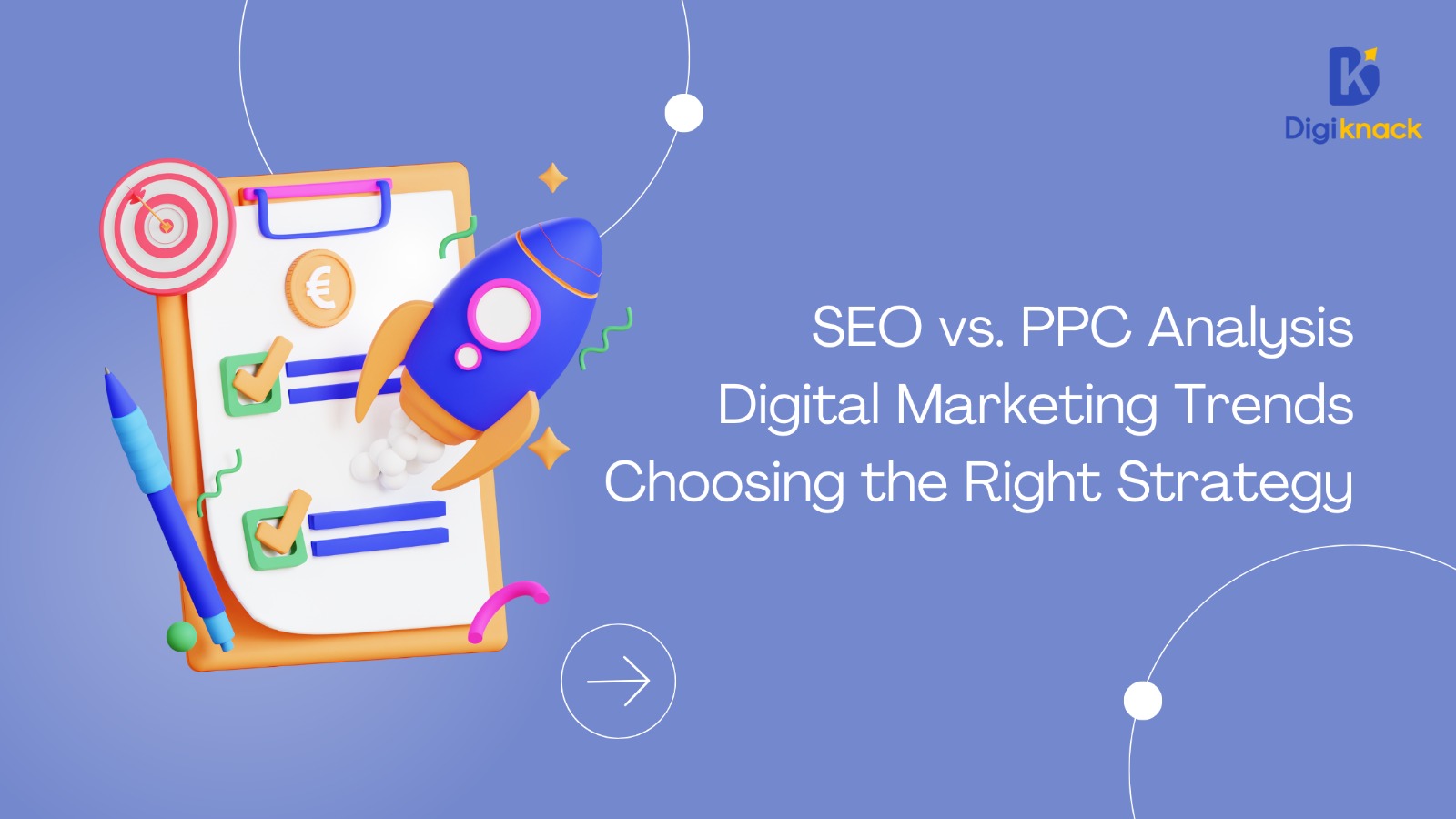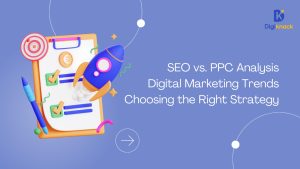Digital marketing has evolved into a multifaceted field with numerous strategies to choose from. Two of the most prominent and effective strategies are Search Engine Optimization (SEO) and Pay-Per-Click (PPC) advertising. Both SEO and PPC have their unique advantages and can be valuable assets for your digital marketing company. In this comprehensive guide, we will delve into the details of these two strategies, comparing their key aspects, and helping you determine which is the best fit for your digital marketing endeavors.
Introduction to SEO and PPC
Defining SEO (Search Engine Optimization)
SEO, or Search Engine Optimization, is a methodical approach to improving a website’s visibility in organic (non-paid) search engine results. It encompasses a wide range of techniques and strategies that aim to enhance a website’s ranking on search engine results pages (SERPs).
Defining PPC (Pay-Per-Click Advertising)
PPC, short for Pay-Per-Click advertising, is a model where advertisers pay a fee each time one of their ads is clicked. It’s a way to purchase visits rather than earn them organically.
Their Respective Roles in Digital Marketing
Both SEO and PPC play critical roles in digital marketing. SEO focuses on long-term, sustainable growth, while PPC is often used for short-term campaigns and immediate results. Depending on your specific goals, you may choose between the two.
Key Metrics and Goals
Comparing the Goals of SEO and PPC Campaigns
The goals of SEO and PPC can differ significantly. SEO aims to increase organic traffic, enhance visibility, and establish authority in the long run. PPC, on the other hand, is geared towards delivering immediate results and driving conversions.
Metrics to Track for Each Strategy
To evaluate the success of your SEO and PPC campaigns, you need to track key metrics. These include organic traffic, click-through rates (CTR), conversion rates, and more. Metrics can vary based on the strategy you’re using.
Cost Considerations
Analyzing the Cost Structures of SEO and PPC
Understanding the cost structures of SEO and PPC is vital. SEO often requires ongoing efforts with a long-term view, while PPC involves ad spending on a pay-per-click basis. Each strategy comes with its cost considerations.
Budget Allocation for Each Strategy
Determining how to allocate your digital marketing budget between SEO and PPC depends on your goals, industry, and the stage of your business. The best results can be achieved by taking a balanced approach.
Time and Results
Understanding the Timeframes for SEO and PPC Results
One of the most significant distinctions between SEO and PPC is the time it takes to see results. Investing in SEO takes time and may take several months to yield positive results. In contrast, PPC provides immediate visibility and results.
Short-Term vs. Long-Term Impact
The impact of SEO is more long-term and sustainable, while PPC can be highly effective for short-term campaigns. Your choice should align with your business objectives and time horizon.
SEO (Search Engine Optimization)
SEO involves multiple facets and strategies, each contributing to a website’s organic search visibility. Let’s explore some key components.
On-Page SEO vs. Off-Page SEO
On-page SEO focuses on optimizing elements within your website, such as meta tags, content, and site structure. Off-page SEO involves building backlinks and establishing your website’s authority in the digital landscape.
Content Creation and SEO
Quality content is the cornerstone of successful SEO. Learn how to create and optimize content to attract and engage your target audience.
Algorithm Updates
Search engines frequently update their algorithms. Staying current with these changes and adapting your SEO strategies is crucial to maintain or improve your rankings.
Local SEO vs. Global SEO
Depending on your target audience and business scope, you might need specific strategies. Local SEO helps brick-and-mortar businesses attract local customers, while global SEO targets a broader, international audience.
PPC (Pay-Per-Click)
PPC advertising is a versatile strategy that allows you to display ads in various formats across different platforms. Here are some essential elements of PPC.
Keyword Research for PPC
Keywords are the foundation of any PPC campaign. Discover how to research, select, and optimize keywords for maximum impact.
Ad Copy and Design
Crafting compelling ad copy and designing eye-catching ad formats can significantly impact your PPC campaign’s success. Explore best practices for ad design and copywriting.
Bidding Strategies
PPC campaigns require careful budget management and bidding strategies. Whether manual or automatic, bidding strategies can influence your ad placements and costs.
Ad Extensions and Formats
Enhance the visibility and effectiveness of your PPC ads through ad extensions. Explore various ad formats, including text ads, display ads, and video ads.
Conclusion and Decision-Making
Pros and Cons of SEO
Summarizing the advantages and disadvantages of SEO helps you evaluate whether it’s the right strategy for your digital marketing company. Consider who benefits most from SEO.
Pros and Cons of PPC
Similarly, analyzing the pros and cons of PPC advertising provides clarity. Assess who stands to gain the most from PPC campaigns.
Making the Right Choice for Your Digital Marketing Company
The decision to employ SEO, PPC, or a combination of both depends on your unique goals, industry, and target audience. By considering the factors that matter most to your business, you can make an informed choice and embark on a strategy that aligns with your vision for success.
The choice between SEO and PPC depends on various factors, and the best approach often involves a combination of both strategies. SEO provides long-term, sustainable growth, while PPC delivers quick, measurable results. Careful planning and a deep understanding of your business goals will guide you toward the best strategy for your digital marketing company.
Are you ready to increase the effectiveness of your digital marketing? Whether you’re leaning towards SEO or PPC, or if you’re interested in a comprehensive approach, Digiknack is here to help you succeed. Contact us today to discuss your digital marketing needs and explore how we can empower your business for remarkable online growth. Join us on your journey to online success!
FAQ
1. Which strategy, SEO or PPC, is better for long-term growth?
Answer: SEO is typically better for long-term, sustainable growth. It focuses on improving your organic search rankings and building your website’s authority over time. While it may take a few months to see significant results, the benefits can be long-lasting. PPC, on the other hand, provides immediate visibility and results but requires ongoing ad spend.
2. How can I determine whether SEO or PPC is more suitable for my business?
Answer: Your choice should align with your business goals, industry, and budget. Consider your short-term and long-term objectives. If you seek quick conversions and have the budget for paid advertising, PPC may be a better fit. For long-term growth and building brand authority, SEO is often the preferred choice.
3. Can I use both SEO and PPC simultaneously?
Answer: Yes, many businesses use a combination of both strategies to maximize their online presence. This approach allows you to benefit from the immediate results of PPC while working on long-term SEO efforts. The key is to strike a balance and align your strategies with your specific goals.
4. Are there industries or businesses that benefit more from one strategy over the other?
Answer: Industries and business types can indeed influence the choice between SEO and PPC. For example, local businesses often benefit from local SEO to attract nearby customers, while e-commerce companies may heavily rely on PPC for product promotion. The decision should be based on your specific circumstances and goals.




